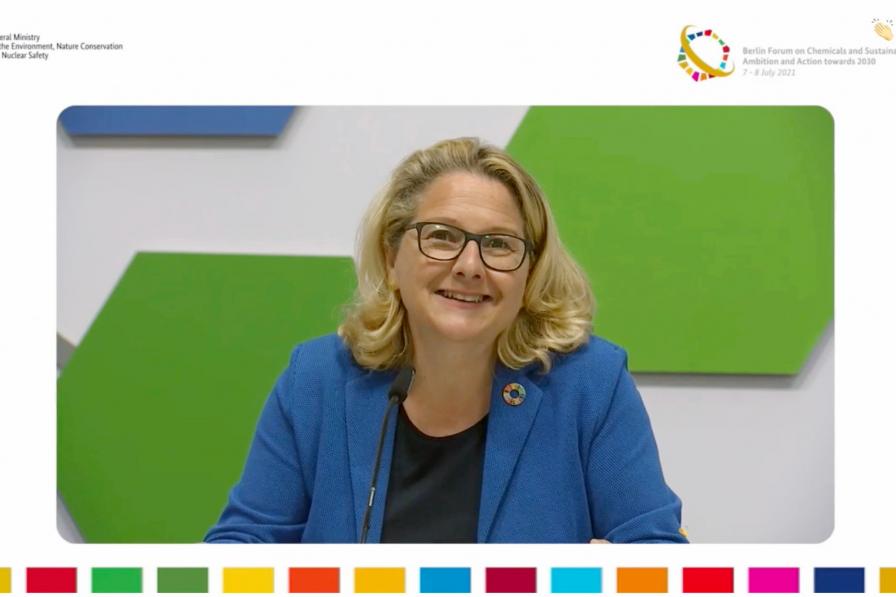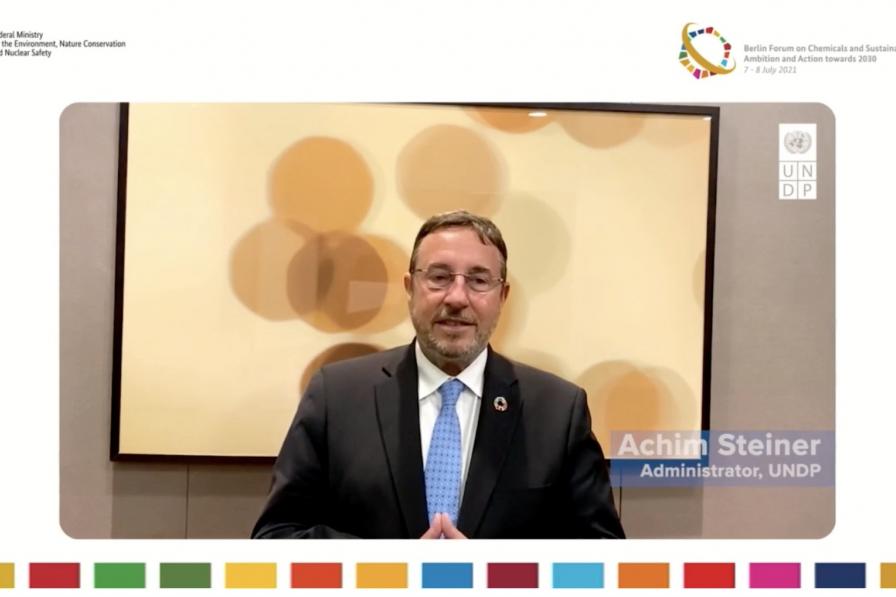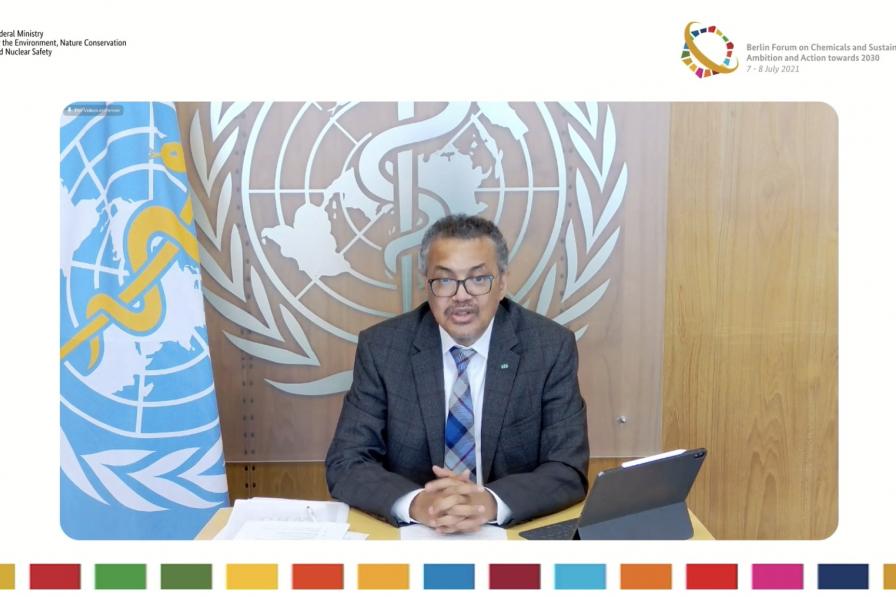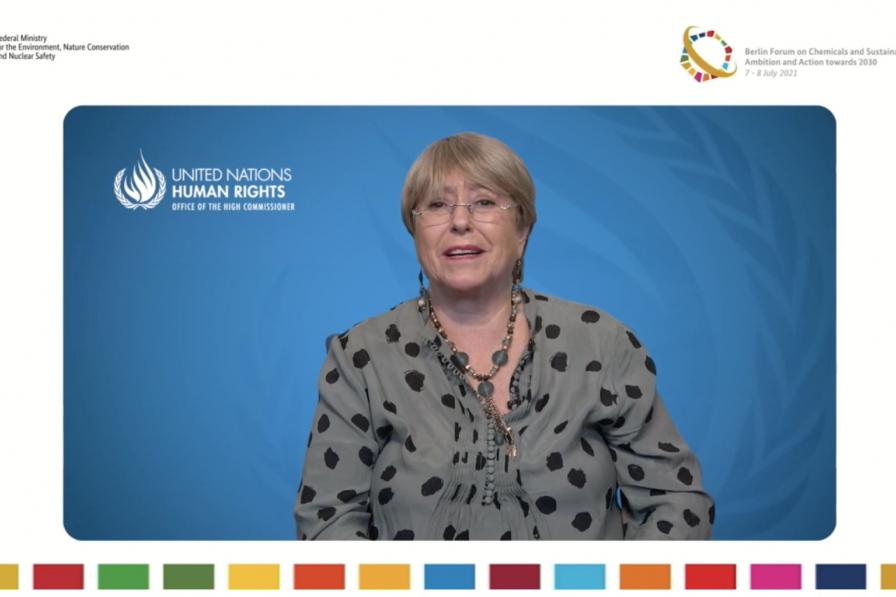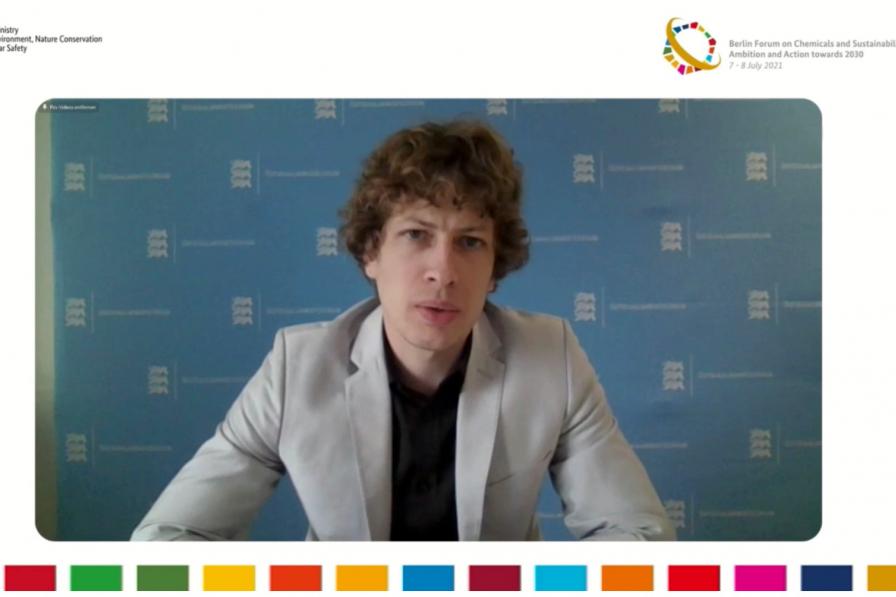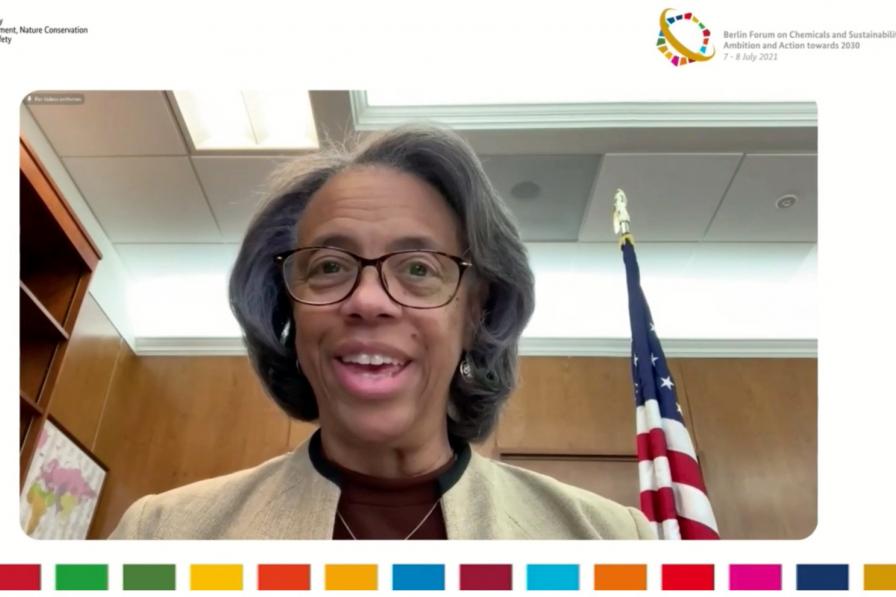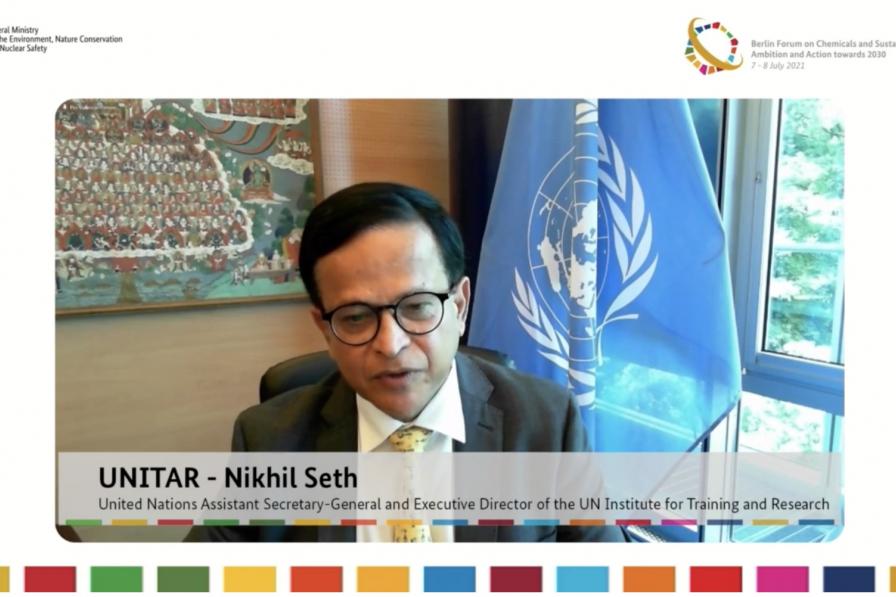The Ministerial Dialogue of the Berlin Forum on Chemicals and Sustainability was opened by Svenja Schulze, Federal Minister for the Environment, Nature Conservation and Nuclear Safety, Germany. She cited an urgent need to act on chemical safety, especially given the postponement of the Fifth International Conference on Chemicals Management (ICCM5) due to the COVID-19 pandemic. Schulze expressed hope the Forum would result in an open exchange on how to make better use of the Strategic Approach to International Chemicals Management (SAICM).
António Guterres, UN Secretary-General, stressed that ICCM5 must deliver an ambitious and strategic global roadmap on sustainable chemicals management. Angela Merkel, Federal Chancellor, Germany, underscored the need to use the Forum to make ICCM5 a success.
Virginijus Sinkevičius, European Commissioner for Environment, Oceans and Fisheries, underscored the need to create a virtuous circle of protection and innovation, and called on countries to continue and conclude negotiations for an improved enabling framework on chemicals and waste.
During the Ministerial Dialogue, Germany, Denmark, and the UK pledged additional funding to the UNEP Special Programme on Institutional Strengthening for the Chemicals Cluster.
On health and justice, Ministers and heads of UN agencies working on development, workers’ rights, health, and human rights highlighted the need for global cooperation and coordination. Many called for rights-based approaches to protect marginalized communities from chemical exposure.
On the 2030 Agenda for Sustainable Development and the sound management of chemicals and waste, many ministers highlighted the disproportionate effects of chemical exposure on the global South. The US, Slovenia, Denmark, Finland, the UK, and Norway, supported a strong outcome for the post-2020 framework for the sound management of chemicals and waste. Switzerland announced it will submit a resolution to the fifth session of the UN Environment Assembly to establish a science-policy body for chemicals and waste, akin to the Intergovernmental Panel on Climate Change.
Ministers highlighted the need to move from a linear to a circular economy that features repair, reuse, recycling, and corporate responsibility for end-of-life products. Ministers from the United Arab Emirates, Colombia, and Viet Nam relayed their countries’ regulations to support circularity and foster innovation that can reduce material use and promote safe alternatives.
Members of the High Ambition Alliance, a multistakeholder group supporting an ambitious outcome for a post-2020 framework for the sound management of chemicals and waste, outlined how a new framework could support their efforts. Members from Thailand, Zambia, and Uruguay spoke to the potential for supporting countries in developing circular approaches and promoting transparency in supply chains, as well as identifying emerging issues. The International Trade Union Confederation stressed the need to protect workers at all stages of products’ lifecycle, from extraction to disposal. IKEA said the framework could provide a foundation for companies to develop their own action plans.
Visit our coverage of the Berlin Forum Press Conference here.

